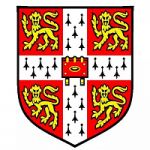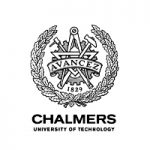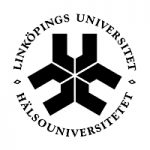项目介绍
This course is aimed at students with backgrounds in natural sciences, technology, mathematics or medicine and a proven interest in sensing. It is structured in two phases: a one-year MRes course followed by a three-year PhD research programme.
The MRes phase consists of a combination of taught and research modules aimed at teaching students the technical and transferable skills required to carry out original research in the area of sensing and to become future leaders in sensor technologies for a healthy and sustainable future.
Subject to passing the MRes Sensor Technologies and Application and demonstrating the ability to conduct research at PhD level, students continue to carry out an interdisciplinary PhD project in the area of sensing offered by the approximately 50 participating academic supervisors. Project supervisors will provide short project outlines. Students will select their project and develop it into a detailed PhD proposal together with their supervisor and defend it in front of a panel of academic and/or industrial members of the Sensor CDT.
The PhD projects will allow students to become experts in their specific fields. Continuing interdisciplinary research activities during the PhD phase, such as workshops and seminars, will foster collaboration across discipline boundaries and provide a peer network. Other opportunities during the PhD phase include entrepreneurship, outreach and industry placements.
The programme has the following aims:
- Produce science and engineering leaders with a high level of understanding and skills in sensor technology, in particular, the fundamentals of the field, together with the necessary systems and applications knowledge, and relevant hands-on skills.
- To produce leaders who understand sustainable practice and bring innovative solutions to pressing societal problems, for example, those relating to our changing environment and health.
- Encourage an appreciation of relevant technological opportunities for sensors and their networks, and the business, road-mapping and cost-analysis tools used to determine the adoption of new technological solutions.
- Encourage students to develop a strong understanding of responsible research and innovation specific to sensor technologies and applications. E.g. data privacy and ownership, trustworthiness of sensor information and unintended use of sensor technologies.
- Develop a strong business awareness in the MRes graduates for the commercialisation opportunities of sensors and related systems, and to foster an understanding of the connections between technology, management and entrepreneurship.
- Expose the students to a range of cognate sensor technologies and application areas, and to provide the experience of a variety of different R&D cultures across the University, via a foundations lecture course, followed by more specialised lecture modules, interspersed with lab rotations, a research mini-project and a sensor team challenge for the whole cohort.
- Encourage students to work across scientific- and engineering-discipline boundaries, with a resultant enhancement of interdisciplinary understanding.
- Equip graduates of the programme with communication and outreach training, personal and development skills, as well as specific research training to enable them to be future technology leaders with excellent public engagement skills.
Learning Outcomes
The course aims to cover the full breadth of topics that encompass modern sensor research, including physical and biological concepts of sensing, sensor technologies, sensor-design principles, sensor networks, processing of sensory data, and sensor applications in the areas of healthcare and sustainable environments, society and economies.
In particular, the MRes and PhD parts of the course are designed to develop the following broad themes:
- Fundamentals of sensors and networked sensor systems, with special emphasis on sensor-fabrication, technology, electronics, and communications
- Concepts of, strategies for, and research skills in sensor-based device fabrication, system design and characterisation
- Hands-on research experience via University-based lab rotations, a sensor design project, and a mini research project, together with a sensor team challenge for the whole cohort, often set in collaboration with the industrial partners
- Concepts of responsible research and innovation
- Aspects of business, innovation, technology development and entrepreneurship
- Specialist know-how in the student’s chosen PhD research area combined with cross-disciplinary knowledge
- Effective communication skills across academic and industrial sensor research and development
Continuing
Normally, students would have to achieve a pass or higher at the MRes stage to be allowed to continue to the PhD stage. Students are also required to defend their PhD project proposal in front of a panel made up of academic and/or industrial members of the Sensor CDT.
录取要求
-
Applicants for this course should have achieved a UK II.i Honours Degree.
联系方式
电话: +44 (0)1223 337733相关项目推荐
KD博士实时收录全球顶尖院校的博士项目,总有一个项目等着你!






